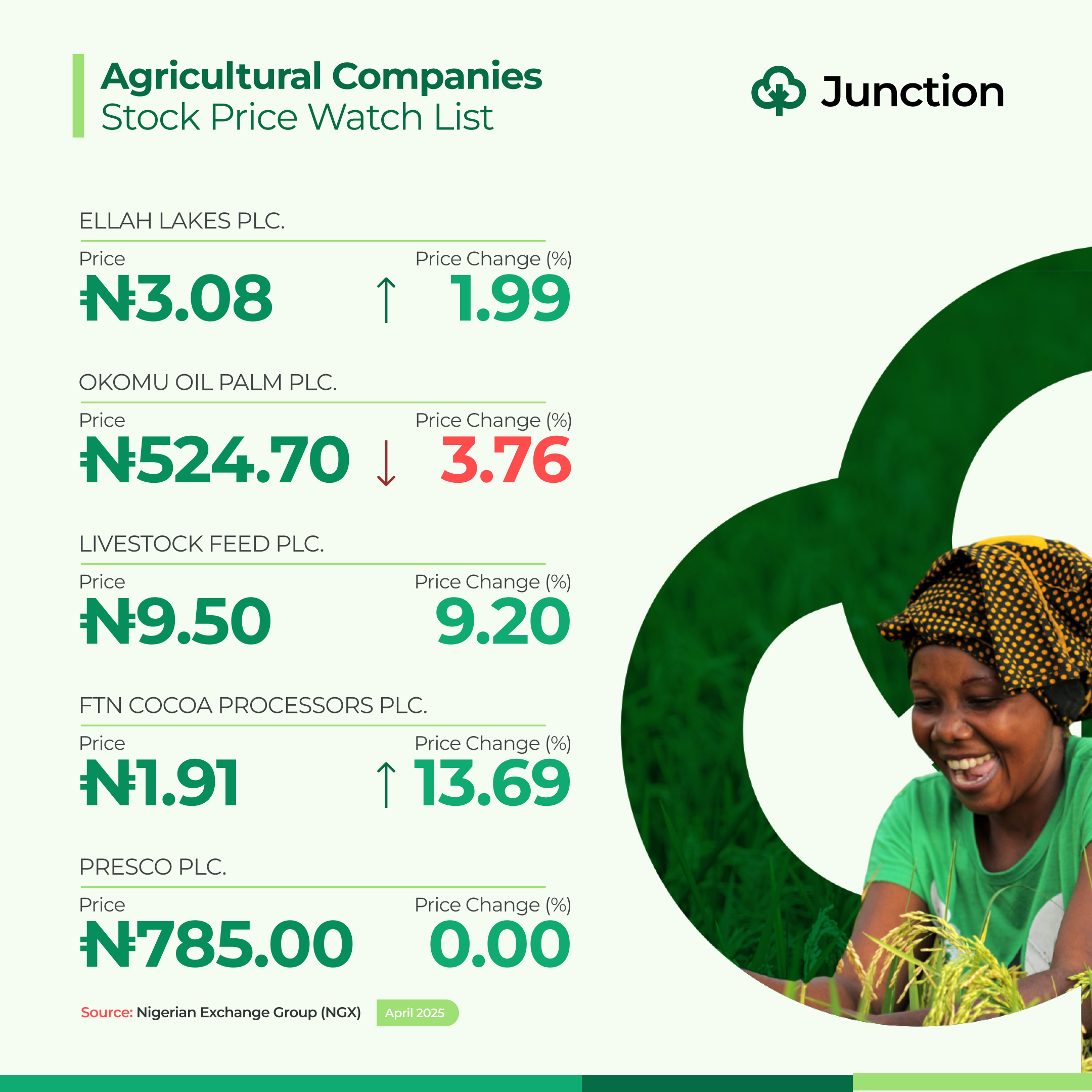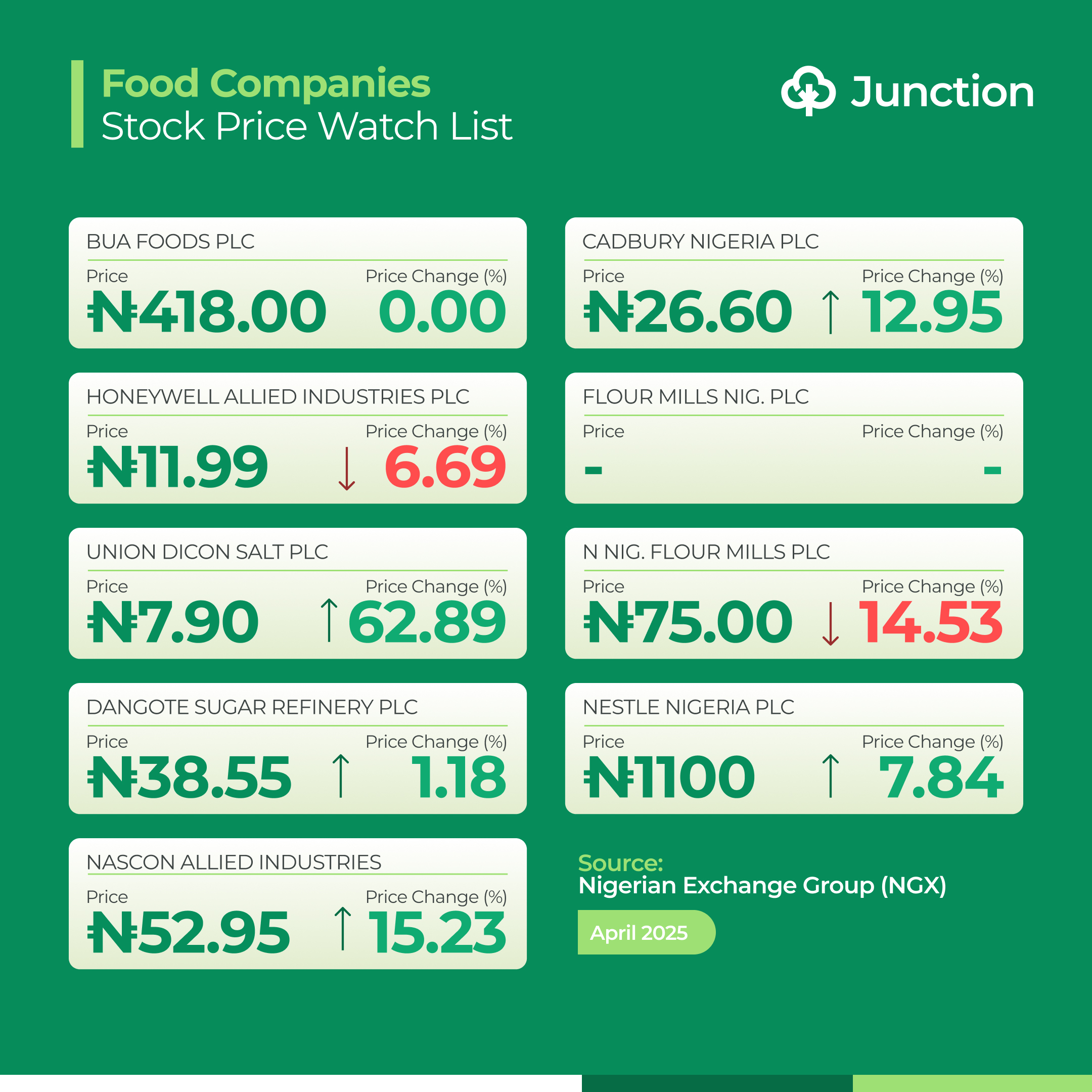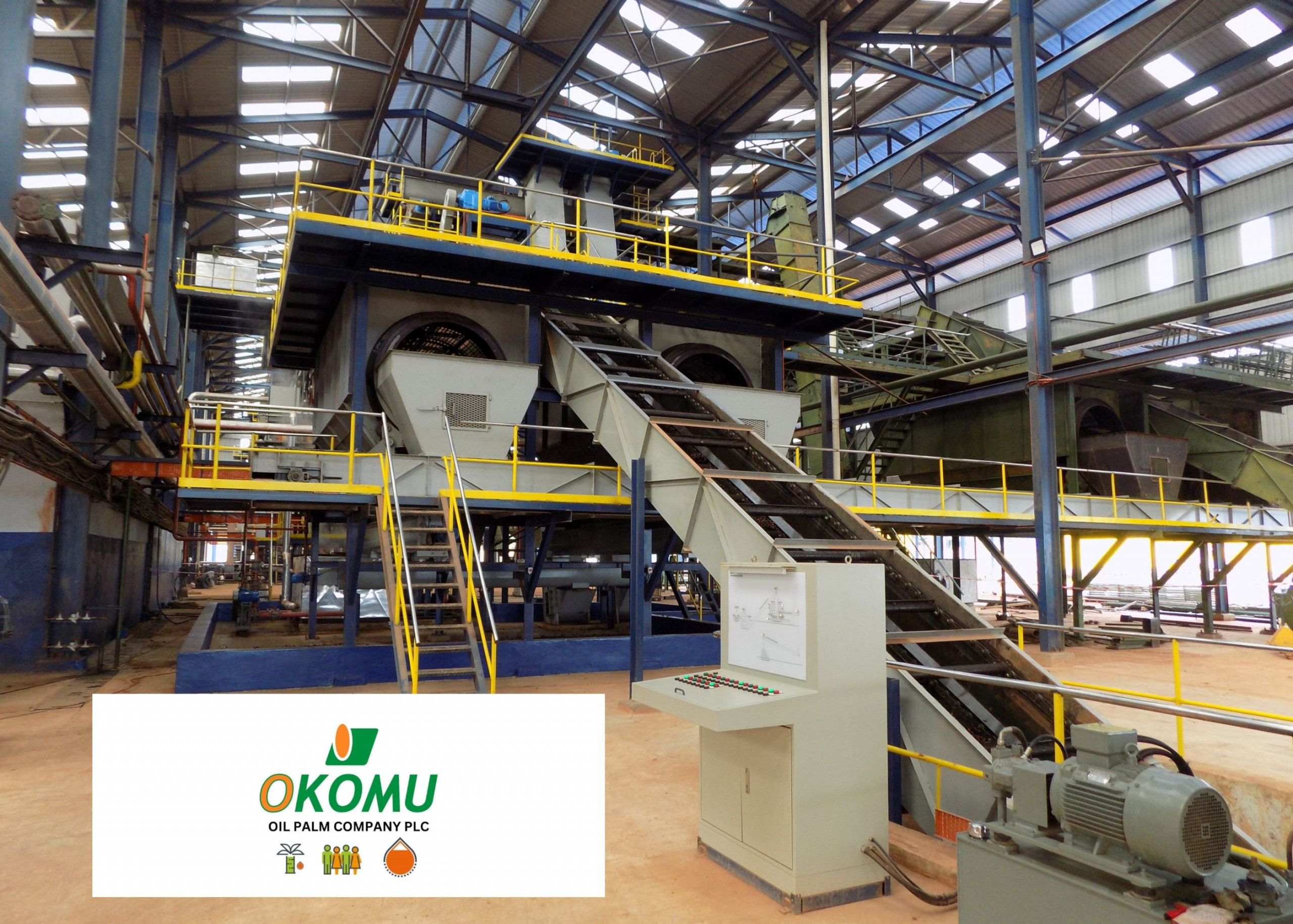Data from the last trading week of April 2025 shows a composite bag for Nigeria’s agricultural and food processing sectors on NGX, with notable winners and a few losers shaping market sentiments and potentially consumer prices in the months ahead.
Agricultural stocks: Okomu Oil loses
Among agricultural companies — businesses focused on growing, raising, or early-stage processing of raw commodities — only Okomu Oil Palm Plc recorded a loss during the month.
Okomu’s share price slipped by 3.76%, falling from ₦545.20 to ₦524.70 after a late-period dip, despite holding steady for most of the month.
In contrast, FTN Cocoa Processors Plc emerged as the best performer, delivering a 13.69% share price increase, while Livestock Feeds Plc followed closely, posting a 9.20% gain.
Ellah Lakes Plc had a modest uptick of 1.99%, and Presco Plc, Okomu’s rival in the palm oil space, saw its stock remain unchanged.

Palm oil is a critical input for several everyday products — from cooking oil to cosmetics. A weakening in Okomu’s stock could signal market concerns about future production costs, yields, or regulatory pressures, all of which could eventually affect product prices for Nigerian consumers.
Food processing companies: a stronger showing
Food processing companies, which transform raw agricultural products into consumer-ready foods, largely outperformed agricultural firms.
Union Dicon Salt Plc led the rally with a stunning 62.89% surge in April, marking a major turnaround after being the worst performer in Q1 2025. Even a minor 0.63% pullback in the final week of April did little to dent investor enthusiasm.
Other strong performers included:
-
Nascon Allied Industries Plc (salt, seasonings): +15.23%
-
Cadbury Nigeria Plc (confectionery, beverages): +12.95%
-
Nestlé Nigeria Plc (food and beverages): +7.84%
However, not all companies saw green:
-
Northern Nigeria Flour Mills dropped sharply by 14.53% (₦87.75 to ₦75.00).
-
Honeywell Flour Mills lost 6.69%.
-
Dangote Sugar Refinery had a modest gain of 1.18%, while BUA Foods Plc recorded no change in share price.

Stronger performance from food processors often signals confidence in consumer demand and purchasing power. However, price movements in the sector can also trickle down to supermarket shelves: higher stock valuations sometimes precede product price adjustments, particularly for staple items like salt, flour, sugar, and packaged foods.
When costs of raw inputs (like palm oil, cocoa, wheat) fluctuate, food processors often pass these costs to consumers, impacting food inflation, a critical factor in Nigeria’s economy, where food forms a large share of household spending.
What does it mean for the broader Nigerian economy?
The agricultural and food sectors are deeply linked to Nigeria’s inflation dynamics and economic stability.
-
Palm oil price swings affect cooking oil, soap, and packaged food prices.
-
Salt price movements influence food preservation and household seasoning.
-
Flour mill struggles could pressure bread and pastry prices, everyday staples for millions.
Investor sentiment toward these sectors offers a glimpse into anticipated supply chain pressures or consumer spending trends. With Nigeria still battling moderate inflation and a fragile economic recovery, stock performance in agriculture and food processing is more than just numbers — it’s an early indicator of broader economic shifts that will touch everyday lives.



